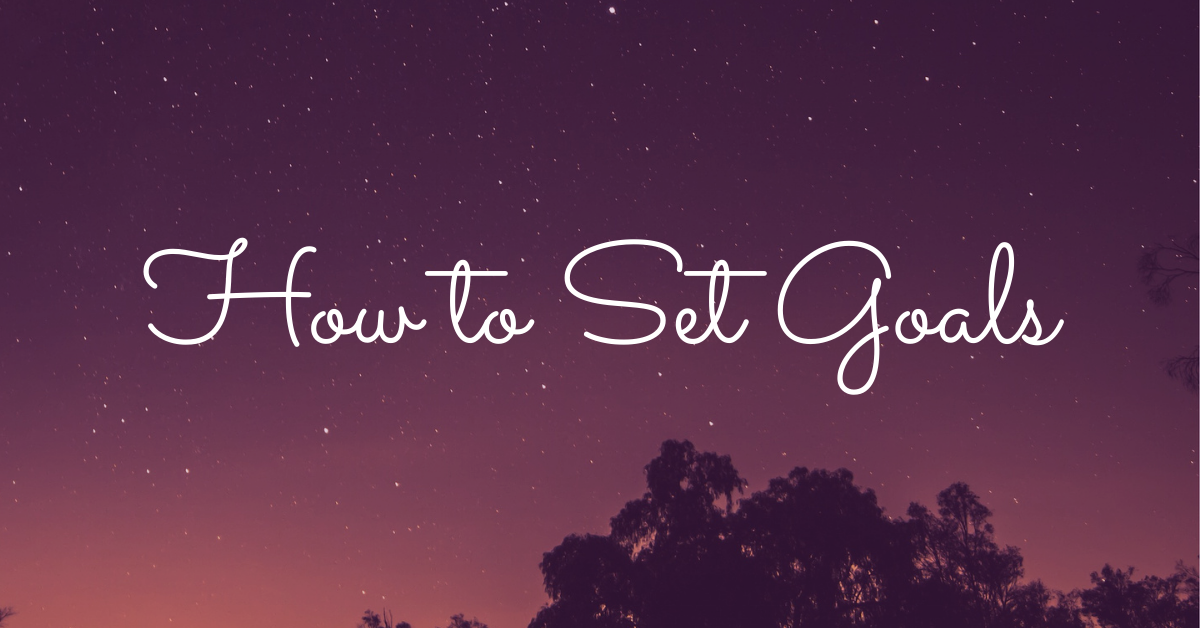The following article may include links to various products/services. Using these links may result in my earning a small commission that helps me keep this site going! Thank you for your support!
Whether you’re a writer, a painter, an entrepreneur, or even someone starting a weight loss journey, knowing how to set goals is crucial to your success.
Without setting goals, how do you know what your targets are? How will you know what your idea of success is if you’re not working towards something in particular?
Regardless of where you’re at in life, goals are pretty much key. That’s why we need to have a solid understanding of how to set goals from the get-go.
Last month, Your Fitness Adventures published a great article that basically covers what you need to know about hitting your fitness, weight loss, and health-related goals. The points made in this article are actually applicable to just about any endeavour!
What should your goals be?
Firstly, learning that there are two different types of goals was a game-changer for me. We need to be setting outcome goals as well as behaviour goals—they need to coexist for your success.
For our purposes in the writing world, I’ll break down my goals for you from this perspective.
My outcome goals (or the end-result goals) are:
- Write a novel.
- Build a blog that will inspire other around me to discover or rediscover their creativity.
Behaviour goals are the actions that will enable you to achieve the outcome goals. For me, these include:
- Writing daily.
- Providing my readers new content on a consistent basis. (Consistency is key to achieving any goal!)
Your writing goals may be very different from mine, but there are certain characteristics that YFA recommends your goals have.
The characteristics of a good goal
Your goals should be written down, to give them a more tangible feel. They should also be specific, measurable, and last but certainly not least, achievable.
Making the ambiguous goal is “I’m going to write something this year” is neither specific nor measurable. Sure, it’s achievable, but what do you stand to gain from an arbitrary goal that’s too vague to really drive that I DID IT! feeling when you hit it?
By ensuring that your goals have these four characteristics, you cut out the opportunity to be wishy-washy about it and say “meh, good enough” when you’re barely halfway through.
My tips for achieving your goals
I believe in breaking up your goals into smaller chunks, and rewarding yourself when those mini-goals are achieved.
Let’s say your goal is to start a blog. You can break that down into something like this:
- Decide on a domain name, and make sure it’s available on social media as well.
- Establish your niche/what kind of content you’ll be writing.
- Purchase your website hosting from Bluehost (bonus: you get a free domain name too!)
- Choose a theme you love.
- Set a schedule for your content.
- Post aforementioned content on schedule.
- And so on!
You can use these mini-goals as a way to keep yourself motivated. Decide on a reward for each task you accomplish. It can be something as small as treating yourself to a Starbucks, or you could say that for every three, you can have take-out. Whatever keeps the ball rolling!
Tracking your progress is also a great way to keep you on track. When you feel like giving up, looking back at how far you’ve already come will make it so much harder to throw in the towel. There will definitely be some setbacks along the way, but it’s how you deal with them that matters.
Last but not least, I believe sharing your goals with the people in your life who support you can go a long way. If you tell me that you’re writing a novel, and I check in with you in a month and you tell me you’ve given up, I will get down to brass tacks with you to find out why. Whether it’s someone you know in real life or a friend you made on the NaNoWriMo forums, having someone to keep you accountable will go a long way.
What if you achieve my goal, but still want to do more?
YAY! That’s a huge win!
First of all, congrats on hitting your goal! I am so proud of you!

Wanting more is a wonderful thing. It means you’ve found something you’re passionate about. If you finished your novel, and you want to write a sequel, or some short stories, or teach writing, then make that your next goal!
Maybe you’re halfway through what you wanted your word count to be, but you’re approaching the end of your story— adjust your goal and write a novella instead!
Once you know how to set goals, setting the next one will be much easier as well.
There is nothing wrong with adjusting your goals as necessary. The outcome goals you started working towards may look very different from how you imagined them, thanks to your behaviour goals. This is why both types of goals must coexist.
Your homework now is to take what you’ve learned and come up with a goal for yourself. Write it down, and give yourself a timeline to achieve it.
If you’d like some feedback on your goal setting, let me know in the comments below!
It’s a good day to have a good day! (This one is a daily outcome goal!)
